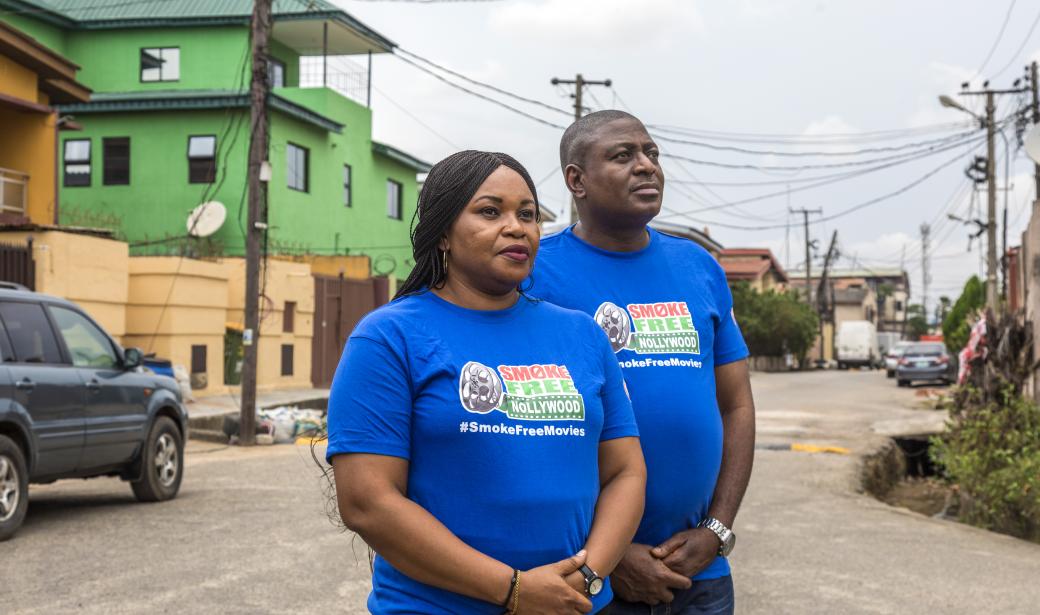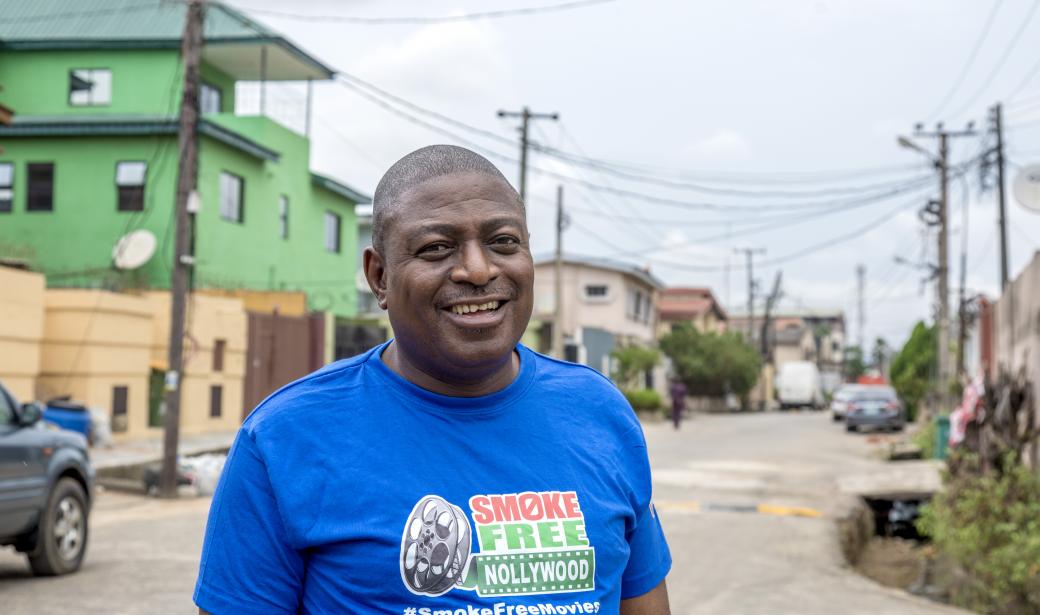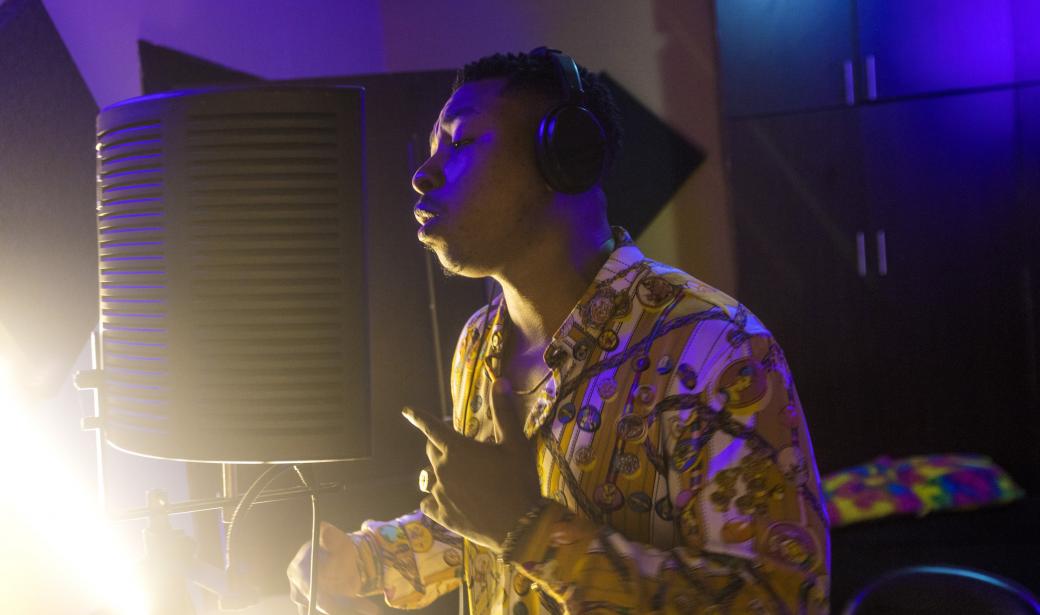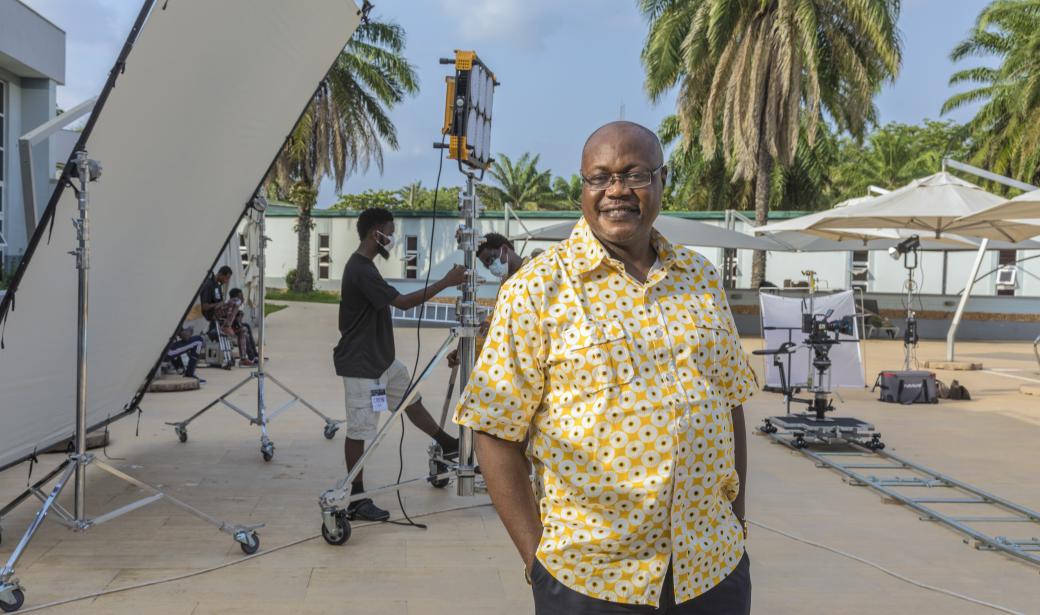Nigeria’s film industry, known as Nollywood, has been the world’s second-largest producer of films, behind India’s Bollywood. Around 2,000 films are made each year, and it employs an estimated one million people. It is the reach of Nigeria’s creativity through its films as well as its power to influence youths that triggered a campaign by the Corporate Accountability and Public Participation Africa (CAPPA) calling for the removal of the harmful glamorization of smoking and tobacco use in films.
With the movement #SmokeFreeNollywood, CAPPA is calling for a complete ban of tobacco use in films and across the Nigerian entertainment industry, including music and television. For CAPPA, the first step is to enforce the two existing laws that already prohibit the use, promotion or sponsorship of tobacco in films. CAPPA also wants the change to come from within the industry. They are asking actors, directors, musicians and producers to learn about the harm they may be encouraging and to take a stand against the use of tobacco in their storytelling.
With the movement #SmokeFreeNollywood, CAPPA is calling for a complete ban of tobacco use in films and across the Nigerian entertainment industry, including music and television. For CAPPA, the first step is to enforce the two existing laws that already prohibit the use, promotion or sponsorship of tobacco in films. CAPPA also wants the change to come from within the industry. They are asking actors, directors, musicians and producers to learn about the harm they may be encouraging and to take a stand against the use of tobacco in their storytelling.
"One in five adolescents in Africa use tobacco products; it’s an urgent issue,” explains Dr Kelias Msyamboza, Medical Officer at Nigeria WHO Country Office. "Nollywood films and Nigerian music videos are watched by families and youths in Nigeria and beyond. We have to protect them from harmful images encouraging tobacco use." The World Health Organization and the Federal Ministry of Health of Nigeria have been supporting the #SmokeFreeNollywood movement through advocacy and training with filmmakers and stakeholders.
Tobacco use during adolescence is a substantial problem in Nigeria, as it is across Africa. A study in Enugu State reported in 2020 a prevalence rate of smoking at 13.3% and other smoked tobacco at 5.8% among grade 8–10 students. American Cancer Society data for Nigeria indicate that 25 000 Nigerian children aged 10 –14 smoke cigarettes daily. Influence can begin early. In a population of nearly 200 million people, 43% of whom are younger than 15, Nigeria’s films have huge reach.
“Wow,” begins Akindbode Oluwafemi, CAPPA Executive Director. “There is enough data to show that a lot of teenagers take up smoking as a result of what they watch on screen. Entertainment is used as a way to influence young people to use tobacco. We want to change this. #SmokeFreeNollywood plans to make a huge impact. This is because Nigerian entertainment is watched across the continent and even Asia and Europe. We cannot allow tobacco corporations to continue exploiting these films as a way to compromise the health and the future of our children.”
“Wow,” begins Akindbode Oluwafemi, CAPPA Executive Director. “There is enough data to show that a lot of teenagers take up smoking as a result of what they watch on screen. Entertainment is used as a way to influence young people to use tobacco. We want to change this. #SmokeFreeNollywood plans to make a huge impact. This is because Nigerian entertainment is watched across the continent and even Asia and Europe. We cannot allow tobacco corporations to continue exploiting these films as a way to compromise the health and the future of our children.”
Reflex Soundz, Afro-fusion musician and music producer
Oya make we tell them, so them go know.
Anytime wey you dey smoke e dey kill you slow
Tobacco bad e dey scatter body
Abeg no follow the hype oh, save your money
Reflex Sound wrote those lines for a CAPPA song competition because he felt strongly against the glamorization of tobacco in Nigerian pop culture. He won the competition. It played on radio and television, and he even opened his shows with it. He shared the song with his 7,500 followers on social media. “I need to do my part,” he says. “So young people can hear the message.”
Anytime wey you dey smoke e dey kill you slow
Tobacco bad e dey scatter body
Abeg no follow the hype oh, save your money
Reflex Sound wrote those lines for a CAPPA song competition because he felt strongly against the glamorization of tobacco in Nigerian pop culture. He won the competition. It played on radio and television, and he even opened his shows with it. He shared the song with his 7,500 followers on social media. “I need to do my part,” he says. “So young people can hear the message.”
“I wrote the song ‘Avoid Tobacco’ (https://www.youtube.com/watch?v=t1noanARKl4&t=2s) about why smoking isn’t good. It’s not healthy and you don’t need it, even if society tends to glamorize it or make it look normal. I use music to let the younger generation know that tobacco is actually dangerous. Tobacco has been glamorized and normalized but I believe it’s possible to change that.”
Sani Mu'azu, award-winning actor and filmmaker
Three years ago, Sani Mu’azu introduced World Health Organization tobacco experts to a group of Nollywood actors, directors and producers. The experts showed them images of the harm tobacco products and second-hand smoke can cause. Those images shook Sani to his core. “Actually, it made me realize that I may be contributing to killing innocent people by what I do in my movies,” he says. He started believing that coolness, success and fun in his storytelling did not have to include tobacco. He began refusing to use cigarettes for his characters. “I have lots of followers, and if they see me doing it, they will definitely do it,” he told the last producer he worked with on a TV series.
“As filmmakers you don’t see yourself as contributing to the detriment of people’s health. You think you’re just playing a role or doing your job innocently. But that’s not the case. For me, it made me realize that I was influencing people to engage in a habit that can damage their health. I never saw shisha as a danger. But when I saw the danger that smoking shisha causes to the physical body, I became scared. I realized that the media, especially movies, are doing more harm than good by not taking a stance against the portrayal of tobacco use.”
All Nigerians, he says, need to see the photos he saw.
“As filmmakers you don’t see yourself as contributing to the detriment of people’s health. You think you’re just playing a role or doing your job innocently. But that’s not the case. For me, it made me realize that I was influencing people to engage in a habit that can damage their health. I never saw shisha as a danger. But when I saw the danger that smoking shisha causes to the physical body, I became scared. I realized that the media, especially movies, are doing more harm than good by not taking a stance against the portrayal of tobacco use.”
All Nigerians, he says, need to see the photos he saw.
For Additional Information or to Request Interviews, Please contact:
Hammanyero, Kulchumi Isa
Communications Officer
WHO Nigeria
Email: hammanyerok [at] who.int (hammanyerok[at]who[dot]int)
Collins Boakye-Agyemang
Communications and marketing officer
Tel: + 242 06 520 65 65 (WhatsApp)
Email: boakyeagyemangc [at] who.int (boakyeagyemangc[at]who[dot]int)








